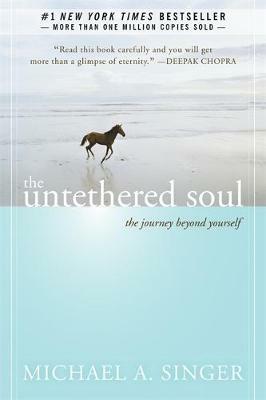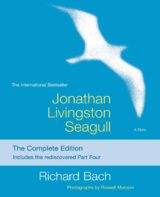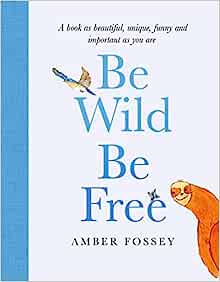CAN CREATIVE WRITING BE TAUGHT?
Creative writing can be taught, but it also requires innate curiosity, discipline, and personal exploration. Having decided to study for my Master’s Degree in Creative Writing, rather than English Literature, I have put together an analysis of advantages and drawbacks of the course after completing my first year. For clarity, I gained a BA Honours in English Literature before deciding to study further for an MA in Creative Writing.
These are the main advantages I have found while studying for an MA in Creative Writing:
Skills and Techniques
Structured programs can teach essential skills like plot development, character creation, pacing, narrative voice, and dialogue. They also provide tools to improve your writing through editing, critique, and feedback. At this level, you will already know much of this information, but there is always more to learn.
Exposure and Inspiration
Writing programs expose students to diverse styles, genres, and perspectives. Reading widely and studying great works are key aspects of improving as a writer. Again, if you are considering study at this level, you will probably already be widely read, but the course teaches you to study a much wider range of genres than you have done previously.
Workshopping and Feedback
Being part of a writing workshop – where peers and instructors critique your work – can sharpen your skills and help you develop thicker skin, a crucial quality for writers. They can also be pretty terrifying at first, but they do teach you not to be too precious about your work.
Practice and Discipline
A structured course often imposes deadlines, forcing students to write regularly. For many, this consistent practice is invaluable. Quite simply, you have to do the work. Waiting for the muse is a luxury you can’t afford.
Finding your Voice
What can’t be taught is your unique voice, passion, and lived experience – these are the elements that make your writing distinct. Every voice is different so there can be never be one generalised method to teach a writer how to use it. However, a good program nurtures and encourages these qualities.
SO IS IT WORTH DOING A DEGREE IN CREATIVE WRITING?
It depends on several factors, including your career goals, financial situation, and expectations.
Advantages of a Creative Writing Degree
A structured learning environment:
This is crucial if you are looking for a systematic approach to learning the craft, which can be especially helpful for beginners or those seeking a disciplined framework.
Access to Mentorship:
Professors and instructors, often established writers themselves, can provide guidance, mentorship, and industry insights.
Networking Opportunities:
Writing programs connect you with peers, editors, and agents, fostering a community that can help advance your career.
Time to Focus:
A degree offers dedicated time and space to focus on writing, which can be hard to carve out in daily life.
Portfolio Building:
By the end of the program, you’ll likely have a substantial body of work, which can serve as the foundation for publishing or further creative endeavours.
Broader Skill Development:
Many programs incorporate related fields, such as screenwriting, journalism, or editing, broadening your skill set.
Drawbacks of a Creative Writing Degree
Cost:
Degrees can be expensive. Student loans and bursaries can help, but they won’t cover your cost of living, and the loans need to be repaid. It’s worth considering whether the investment will pay off in terms of career opportunities.
Uncertain Job Market:
Creative writing jobs (novelist, poet, etc.) are often highly competitive and don’t always guarantee financial stability. Many graduates supplement their income through teaching, freelancing, or non-writing jobs.
Not Essential for Success:
Many successful authors never pursued formal education in creative writing. What matters most is your commitment to honing your craft.
Risk of Homogenization:
Some critics argue that creative writing programs can unintentionally push students toward particular styles or tropes, stifling originality. There is also the opinion that sticking to structured criteria can limit your voice. The best novels are often not those that follow a grammatically correct structure.
ALTERNATIVES TO A DEGREE
If you’re unsure about committing to a degree program, there are other ways to develop your writing:
Workshops and Short Courses
Community workshops, online platforms, and local colleges often offer creative writing courses without the cost or time commitment of a full degree.
Self-Study
Many great books on writing exist. Pairing reading with disciplined practice can be just as effective.
Writing Groups
Joining or forming a writing group can provide feedback and accountability.
Freelance Opportunities
Starting with small writing projects, blogs, or freelance work can help you learn by doing.
Mentorship Programs
Some organisations offer mentorships with established writers, which can be more targeted and personalised than a degree.
REASONS TO CONSIDER A DEGREE IN CREATIVE WRITING
You thrive in structured academic environments.
You want to build connections and gain mentorship from experienced professionals.
You’re prepared for the financial commitment.
Your goal is to teach creative writing (many academic jobs require advanced degrees).
REASONS NOT TO PURSUE CREATIVE WRITING STUDY
You’re confident in your ability to self-learn.
The cost outweighs the potential benefits.
You’re unsure about committing to writing full-time.
Ultimately, the worth of a creative writing degree is subjective and depends on your individual circumstances. If you’re passionate about storytelling and committed to improvement, there’s no wrong path to success, but always keep in mind that there are no guarantees just because you have a qualification. The best writers are still those who have a passion for their craft, are prepared to work hard, and believe in themselves and their work.
Below are some Amazon affiliate links to some of the best books I have discovered, and been recommended, while studying for the MA.
Jessica Brody – Save the Cat Writes a Novel
Peter Selgin – By Cunning and Craft
Nikesh Shukla – Your Story Matters
Hazel Smith – The Writing Experiment
Jurgen Wolff – Your Writing Coach and Your Creative Writing Masterclass



